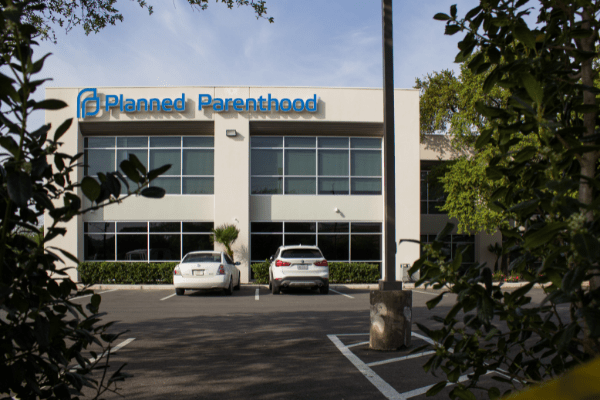In Texas this week, a last-minute attempt to stop Senate Bill 8 that bans abortion through an appeal to the US supreme court failed.
Senate Bill 8 (SB8) was ushered through the Texas legislature and signed into law by the Republican governor back in May this year. It bars abortion once embryonic cardiac activity is detected (roughly six weeks) and gives no exceptions for incest or rape.
This law now makes Texas the first state to ban abortion this early in pregnancy since Roe v Wade.
The near-total abortion ban in Texas, signed by Governor Greg Abbott, will give citizens the choice to sue an abortion provider who breaches the law. It also galvanises any citizen to bring a civil suit against an abortion provider or anyone who “aids or abets” the procedure.
Amanda Williams, the executive director of Lilith Fund, an abortion support group, told The Guardian that abortion access “…will be thrown into absolute chaos.”
“Unfortunately, many people who need access the most will slip through the cracks, as we have seen over the years with the relentless attacks here in our state,” she said.
“It is unbelievable that Texas politicians have gotten away with this devastating and cruel law that will harm so many.”
State abortion providers also said that the law “immediately and catastrophically reduces abortion access in Texas”, and will likely see the forced closure of many abortion clinics.
The majority of Texas women will likely be prevented from accessing abortion care, since many are not even made aware they are pregnant in the first six weeks.
Planned Parenthood and Whole Woman’s Health told The Guardian they would comply with the extreme law despite the fact that it is contrary to their best medical practices.
Whole Woman’s Health clinics founder, Amy Hagstrom Miller believes that most of the physicians across Texas will not continue to assist in the procedure in order to prevent risking their livelihoods.
Dr Ghazaleh Moayedi, a Texas abortion provider and OB-GYN told The Guardian they will “…comply with the law even though it is unethical, inhumane, and unjust.”
“It threatens my livelihood and I fully expect to be sued,” Moayedi said. “But my biggest fear is making sure the most vulnerable in my community, the Black and Latinx patients I see, who are already most at risk from logistical and financial barriers, get the care they need.”
According to The Guttmacher Institute, the abortion ban will force most patients to travel to other states for care, driving up the transportation costs twentyfold. Many will be unable to do so, due to limitations in resources, employment, social status and childcare.
For months, providers and abortion fund support groups have scrambled to work together with out-of-state clinics to make sure patients received urgent care when SB8 came into effect.
Anyone involved in supporting the care of someone seeking an abortion might open themselves to a SB8 legal suit from a stranger, including clinic nurses, abortion fund workers, domestic violence and rape crisis counselors, and even someone who helps drive a patient to a clinic.
If successful, a citizen can receive a minimum of $10,000 if they win a case under a SB8 legal suit.
The Republican-dominated state of Texas is one of the most difficult states in America for access to abortion. It has the highest number of abortion deserts in the country — cities where abortion-seeking patient has to travel at least 100 miles for care.


